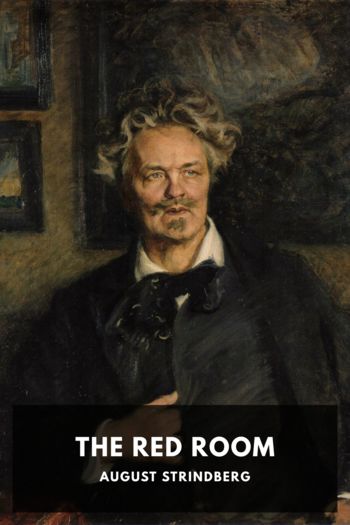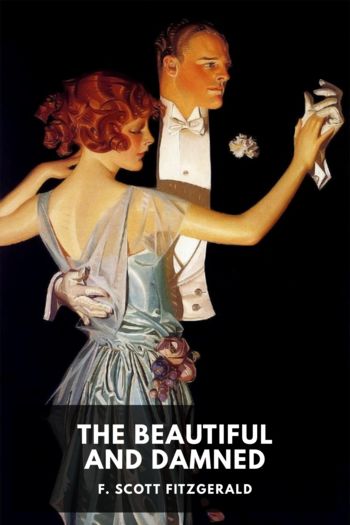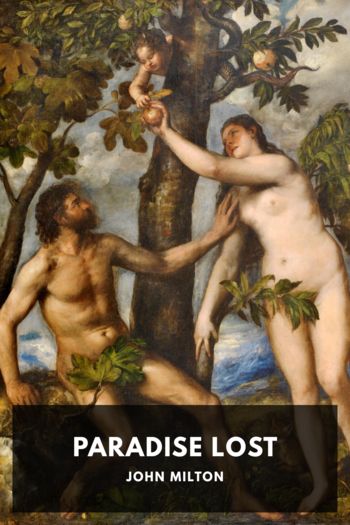The Inferno by August Strindberg (love novels in english .txt) 📕

- Author: August Strindberg
Book online «The Inferno by August Strindberg (love novels in english .txt) 📕». Author August Strindberg
In the afternoon I rub together on a piece of paper quicksilver, tin, sulphur, and chlorate of ammonia. When I took off the mixture, the paper retained the impression of a face, which had an extraordinary resemblance to that of my wife in the dream of the past night.
July 1st.—I expect an eruption, an earthquake, a thunderbolt somewhere or other. Nervous as a horse when wolves are near, I scent danger, and pack my box ready for Hight without being able to decide on it. The Russian has been liberated from prison for want of proofs; his friend the Dane has become my enemy. The customers in the restaurant persecute me. We had our last meal in the courtyard on account of the heat. The table was placed between the dustbin and the lavatory. Over the dustbin hung the picture of the crucified woman by my former American friend. They had revenged themselves so severely upon him that he had disappeared without paying his debts. Near the table the Russians have placed a statuette, a warrior with the conventional scythe, possibly to frighten me! A young fellow belonging to the house goes behind my back to the lavatory with the thinly concealed purpose of annoying me. The court is as narrow as a mineshaft, and admits no sunlight over the high walls. The women who live in the different storeys make obscene remarks over our heads. Domestic servants come with their baskets full of rubbish in order to empty them into the dustbin. It is hell itself! Moreover, my two neighbours, notoriously immoral characters, try, with their disgusting talk, to entangle me in a quarrel.
Why am I here? Because loneliness compels me to seek human society and to hear human voices. Just as my mental suffering reaches its highest pitch, I discover some pansies blooming in the tiny flowerbed. They shake their heads as though they wished to warn me of a danger, and one of them with a child’s face and large eyes signals to me, “Go away!” I rise and pay; as I go out the young fellow mentioned above greets me with concealed contempt, which irritates me. But I remain quiet.
I feel pity for myself and shame for the others. I forgive the offenders as though they were demons, who must now fulfil their duty. Meanwhile, the disfavour of the powers is all too obvious, and I begin in my room to total up the debit and credit side. Hitherto, and that was my comfort, I have never been able to bow myself before others, but now, crushed by the hand of the invisible, I am anxious to own myself wrong, and fear lays hold upon me when I carefully think over my behaviour during the last weeks. My conscience exacts my confession ruthlessly and pitilessly. I had sinned through conceit, through ὕβρις, the one sin which the gods do not forgive. Encouraged by the friendship of Dr. Popus, who had praised my experiments, I imagined that I had solved the riddle of the Sphinx. An imitator of Orpheus, I assumed it as my role to reanimate nature, which had been done to death by the scientists. Confident of the favour of the powers, I flattered myself that I was invincible as regards my foes, and forgot the most ordinary rules of modesty.
This is the right point at which to insert the history of my secret friend who has played a decisive role in my life as mentor, counsellor, comforter, judge, and, not least, as a reliable helper in various times of need. As early as 1890 he wrote to me about a book which I then published. He had found points of contact between my ideas and those of the theosophists, and wished to hear my opinion of the Occult Doctrine and the priestess of Isis, Madame Blavatsky. The aggressive tone of his letter annoyed me, and I did not conceal this annoyance in my answer. Four years later I published my Antibarbarus, and received at the most critical juncture of my life a second letter from this unknown friend, in which, in an elevated and almost prophetic style, he foretold for me a future fraught with suffering and glory. At the same time he explained to me that he had resumed this correspondence, because he guessed that I was just now in the throes of a spiritual crisis in which a word of comfort might be opportune. Finally, he offered me material aid, which I, jealous of my miserable independence, declined.
In the autumn of 1895 I resumed the correspondence by offering him my natural history studies for publication. From that time we kept up the most intimate and friendly correspondence, with the exception of a small disagreement which occurred, when he once took upon himself to instruct me in an insulting way about matters which I knew very well, and preached to me proudly about my want of modesty. After we had made it up again, I imparted to him all my observations, and gave him more of my confidence than was perhaps wise. I confessed to this man, whom I had never seen, everything, and let him admonish me seriously, for I regarded him more as an idea than a person; he was for me a messenger of Providence, my good angel.
Then there occurred between us a strong difference of opinion which led to very lively discussions, without, however, leading to any bitterness. As a theosophist, he preached “Karma,” i.e., an abstract total of human destinies which balance each other so as to result in a kind of Nemesis. He was accordingly a champion of the mechanical view of the universe, a representative of the so-called materialistic school. To me, on the other hand, the powers had revealed themselves as concrete, living, individual personalities, who





Comments (0)